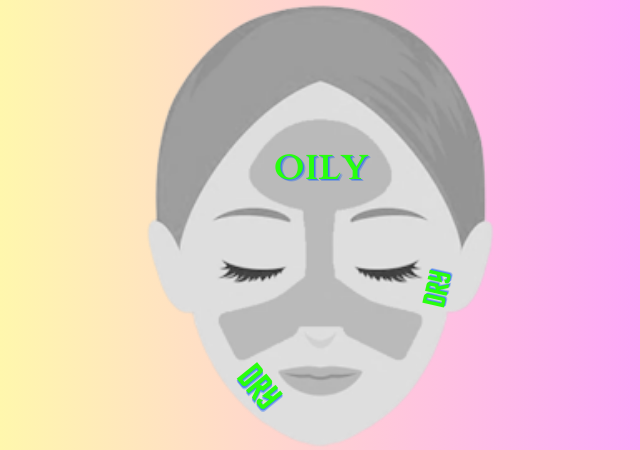Are You Sabotaging Your Skin? Know Your Skin Type NOW!
Introduction
Are you unknowingly wreaking havoc on your skin? Your skincare routine might be causing more harm than good if you don’t understand your skin type. Welcome to “Are You Sabotaging Your Skin? Know Your Skin Type NOW!” In this eye-opening journey, we’ll explore the intricacies of different skin types – from the dry, the normal, to the oily – and reveal the crucial role they play in your skincare regimen.
Your skin is your body’s largest organ, and understanding its unique characteristics is the key to achieving a radiant and healthy complexion. We’ll delve deep into the nuances of dry, normal, and oily skin, unveiling the telltale signs, causes, and expert tips for managing each type effectively. Don’t let misconceptions about your skin type hold you back any longer. Join us as we empower you with the knowledge you need to transform your skincare routine and unleash your skin’s true potential. Say goodbye to sabotaging your skin – it’s time to take control!
The Significance of Skin Type
Your skin type is determined by several factors, including genetics, environmental influences, and hormonal changes. These factors dictate how much oil your skin produces, how hydrated it remains, and how prone it is to various issues. Identifying your skin type is essential because it helps you choose the right products, routines, and treatments that will best serve your skin’s unique needs.
Dry Skin: Craving Moisture

Description: Dry skin often feels tight, rough, and dull. It can be prone to flakiness and redness.
Common Symptoms:
- Itchiness and discomfort.
- Noticeable fine lines and wrinkles.
- Dull complexion.
- Occasional red patches.
Causes:
- Genetics.
- Harsh weather conditions (cold, dry air).
- Overuse of harsh skincare products.
- Hormonal changes.
Tips for Managing Dry Skin:
- Hydration: Moisturize regularly with a rich, hydrating cream.
- Gentle Cleansing: Use a mild, hydrating cleanser and avoid hot water.
- Humidifier: Use a humidifier to add moisture to the air in dry environments.
- Sunscreen: Always apply sunscreen to protect your skin from UV damage.
- Avoid Harsh Products: Steer clear of products with alcohol or fragrances.
Normal Skin: The Goldilocks Zone

Description: Normal skin is well-balanced and typically feels smooth and supple.
Identifying Normal Skin:
- No excessive dryness or oiliness.
- Few visible blemishes or imperfections.
- Even skin tone.
- Minimal sensitivity.
Maintaining Healthy Normal Skin:
- Cleansing: Use a gentle, pH-balanced cleanser.
- Moisturizing: Apply a light, non-comedogenic moisturizer.
- Sun Protection: Continue to protect your skin from UV rays.
- Healthy Diet: Maintain a balanced diet and stay hydrated.
- Minimal Makeup: Avoid heavy makeup that may clog pores.
Oily Skin: Battling the Shine

Description: Oily skin often appears shiny, especially in the T-zone (forehead, nose, and chin). It is prone to enlarged pores and acne breakouts.
Common Symptoms:
- Excessive shine.
- Enlarged pores.
- Frequent blackheads and whiteheads.
- Acne breakouts.
Causes:
- Overactive sebaceous glands.
- Hormonal fluctuations (common in adolescence).
- Genetics.
- High humidity.
Managing and Caring for Oily Skin:
- Gentle Cleansing: Use a mild, foaming cleanser to remove excess oil.
- Oil-Free Products: Opt for oil-free moisturizers and makeup.
- Exfoliation: Use a gentle exfoliant to prevent clogged pores.
- Salicylic Acid: Products containing salicylic acid can help control oil and treat acne.
- Regular Cleansing: Wash your face twice daily to control excess oil.
Combination Skin: A Mix of Types

Combination skin is a blend of different skin types in various areas of the face. For example, you might have an oily T-zone but dry cheeks. It’s essential to recognize these differences and tailor your skincare routine accordingly. Use gentle, balanced products that address each area’s unique needs.
Factors Affecting Skin Type

Several factors can influence your skin type, including genetics, environmental conditions, hormonal changes, and lifestyle choices. It’s essential to consider these factors when assessing your skin type and adapting your skincare routine as needed.
- Genetics: Your family history can play a significant role in determining your skin type. If your parents had oily skin, you might be more prone to it as well.
- Environmental Factors: Living in a dry or humid climate can impact your skin. Cold, dry winters can exacerbate dry skin, while hot, humid summers can worsen oily skin.
- Hormonal Changes: Hormonal fluctuations, such as those during puberty, pregnancy, or menopause, can affect your skin type. It’s common for individuals to experience changes in their skin during these times.
- Lifestyle Choices: Your skincare routine, diet, and habits can influence your skin type. Harsh products, poor diet, smoking, and excessive sun exposure can all contribute to skin issues.
The Importance of a Proper Skincare Routine

Now that you’ve identified your skin type, it’s time to tailor your skincare routine to meet its specific needs. Here are some general guidelines:
- Cleansing: Use a gentle cleanser suitable for your skin type. Avoid harsh scrubbing or over-cleansing, as this can irritate the skin.
- Moisturizing: Regardless of your skin type, moisturizing is essential. Choose a product that suits your skin’s moisture needs. Dry skin requires a richer moisturizer, while oily skin benefits from lightweight, oil-free options.
- Sun Protection: Always apply sunscreen to protect your skin from harmful UV rays. Even on cloudy days, UV exposure can cause damage.
- Avoid Harsh Ingredients: Be cautious with products that contain alcohol, fragrances, or harsh chemicals. These can strip the skin of its natural oils and cause irritation.
- Regular Exfoliation: Exfoliate your skin 1-3 times a week to remove dead skin cells and prevent clogged pores. Use a gentle exfoliant suitable for your skin type.
- Consult a Dermatologist: If you have specific skin concerns or conditions, consider consulting a dermatologist for personalized advice and treatments.
Common Myths About Skin Types
Before we conclude, let’s debunk some common myths about skin types:
- Myth: Oily Skin Doesn’t Need Moisturizing: False. All skin types, including oily skin, benefit from proper moisturization.
- Myth: Dry Skin Causes Wrinkles: Dry skin can accentuate the appearance of wrinkles, but wrinkles are primarily caused by factors like aging and sun exposure.
- Myth: Oily Skin Doesn’t Age: Oily skin can also develop signs of aging. Proper care and sun protection are crucial to maintain youthful-looking skin.
- Myth: Normal Skin Is Problem-Free: While normal skin is less prone to issues, it still requires maintenance and protection.
Conclusion
Understanding your skin type is the first step in achieving healthy, radiant skin. Don’t sabotage your skin by using products and routines that aren’t tailored to your specific needs. Whether you have dry, normal, or oily skin, the key is to adapt your skincare routine to address your unique concerns and maintain the health and beauty of your skin. So, take the time to get to know your skin type and unlock its full potential for a lifetime of glowing, confident beauty.

My name is Rohit Vagh and I’m a content writer specializing in fashion and lifestyle. I have three years of experience in this field and have written various articles. My writing style is creative and engaging, and I strive to create content that resonates with my readers. I have a deep passion for fashion and am constantly researching the latest trends and styles to make sure my readers are up to date. I’m excited to continue my career in blogging, and I’m always looking for new opportunities in the fashion and lifestyle space.





